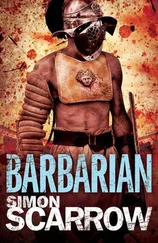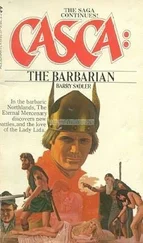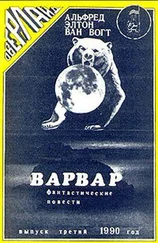They also adore a sort of oscillating between low and middle notes. They introduce an unbelievable number of words into an already rapid cadence, forming a recitation multiplied by four, the best thing that was done in the way of motion before the locomotive. And all this is not in the least disagreeable, ending in a little point that is rather mediocre, sourish, unsoaring, and quite like an operetta.

When it comes to speed, they have nothing to learn from anyone. Into their drama, which is more varied than anything of the kind in Europe, they introduce everything — the nine ingredients, comedy, morality, poetry, action, etc. The play goes on without interruption for seven hours, through from two to two hundred and fifty scenes, and heaven knows how many changes of scenery. All this with a style and with gestures that are merely suggested, and at once forgotten. The whole thing is diverting, full of life.
The cinema taught them nothing. They were already much faster. The gags are followed by bursts of laughter in the house, loud, but immediately after gobbled up, swallowed, vanished. Discharges.
There is a power in all this that says: ‘Come on, don’t dawdle, cut it short!’ Someone sings, the same song is taken up at once in another key. Then suddenly the melody is broken off altogether, and then the key is changed again. The actors go out, leaving no atmosphere behind them. The scenes pass rapidly by in the natural chronological order, following each other very closely, and a donkey could understand it. As there is no atmosphere, interruptions are of no consequence. On the stage, a man reduced to extreme poverty begs for charity. A fellow, in jest (they all have a sense of the comic; many of the scenes are extraordinarily droll), a fellow in the orchestra seats throws him an anna (a sou), and immediately the whole house amuses itself throwing annas . This lasted, I am sure, from eight to ten minutes, then began all over again.
Another time I was present at the last performance of a theatrical troupe. They were giving a drama with a tendency to moralize, and its subject was poignant.
Well, right in the middle of the dialogue, the audience got up on the stage (generally children, and several of them at a time) to present flowers and garlands which the actor at once put around his neck, and oranges which he stuffed in his pockets, or as far as possible kept in his hands, and the performance went on.
Extremely embarrassing custom to the European — the feminine roles are played by men dressed as women, a kind of abortion, most of them, with at times a beautiful contralto voice in falsetto.
‘These roles,’ as someone in the audience explained to me, ‘could not be played by women. They are too difficult(!). The young men that you will see have practiced from their earliest years to learn how to be effeminate. And a man who practices goes much farther than a woman.’
Here, indeed, I said to myself, are arguments. But when I saw the actors, I was not too disappointed. They had in fact many feminine reflexes, every instant, even when standing apart, of which a woman is neglectful, if I may say so.
But make-believe cannot have the value of the natural.
I saw afterwards, in Madras, Sundarambal, the great Tamil actress, a marvelous singer, the only beautiful Dravidian woman I ever saw, and one most truly talented. She seemed to have oil as well as blood in her body, and petroleum. When she appeared, she crushed the other women (who were men) even before she had made a gesture (she made few), before she had begun to sing. She possessed a wholesome femininity, that of a woman made of glands and soul. The others were coquettes, for the man cannot be a natural woman. They were trying to be women . She was trying to be a human being . She succeeded, without doubt. But existing in her was that essential, peculiar something, all the more exciting in that she paid no attention to it — femininity.

His rhythm alone would make the Southern Hindu more akin to the European than the Bengali.
The modern Tamil novels are like European novels — plenty of action.
The people of the South are not unlike the Italians (there are, in fact, a good many of them in Madras) and the Spanish.
They have a nice sense of the comic, and no European could ever ridicule caste institutions and their ‘sacred customs’ as do the Tamils today, and with matchless comedy.
And besides, they enjoy (contrary to the people of the North) seeing European films.
It is obvious that they do not want to set up their truth against that of European civilization.
(The same thing with the Negroes of Africa, and the same thing where their rhythm is concerned, and the ease with which they are Europeanized.)
While for the Bengali, unadulterated European culture will never be his culture. He will make something quite different out of it, and certainly quite remarkable.

I wonder whether the Hindu race, without its gift for the psychic, would have gone in so much for the occult.
Though many Hindus who have a European education have lost their metaphysical gifts, others, particularly among underlings, having not done much studying, and thus been less exposed to mental distortion, have retained them.
There was an employee of the South India Railway who, they assured me, cured snake bites.
As soon as someone was bitten, a relative ran to the station: ‘Where is so-and-so?’
‘Oh, he is on the train, on the… line.’
They telegraphed to him: ‘So and So. Snake. Bitten.’ The telegram flew from station to station in search of the train and the man.
They waited anxiously for the reply. At last it came: ‘He will be all right.’ 2 And everyone went away rejoicing. And the poison was no longer effective.
What did the employee do? Well, he communed with himself for an instant in a compartment. ‘In the name of… (one or another of the saints) may the poison not rise.’ Then he went on punching tickets.
Hundreds of telegrams were exchanged thus, and quantities of venom turned to water.
Psychic gifts of a similar kind are to be found among all castes, the noblest as well as the most despised, even among barbers and cobblers.
You can understand how, in such a country, the distinctions between imbeciles and non-imbeciles are so unsatisfactory.
The employee mentioned was perhaps mentally an ‘imbecile,’ or even amoral, as often happens with them, but, nevertheless, making more complete use of the resources of the total being than his superiors.
In India, the critical mind is not what counts.
But is the critical mind anything to gape at?
Pilate had a critical mind, a distinguished mind. Even with Christ, he succeeded, after a fashion, in appearing to be the cleverer of the two. ‘What is truth?’ said he. And then exited. He was, in fact, referring to a mental truth. In this domain, one could not give him what does not exist.

The less approachable someone is, the more he has an inner life.
Such is the Englishman, and such the Bengali.
One cannot too strongly urge translators with the ‘gift of tongues’ to set to work on Bengali.
There is no literature so amazing and often so beautiful as Bengali literature. Tagore is not a lost islet. There is a quantity of writers, there are hundreds of works of the nineteenth and twentieth centuries to translate, for which I would exchange half of Europe’s literary production.
Читать дальше













